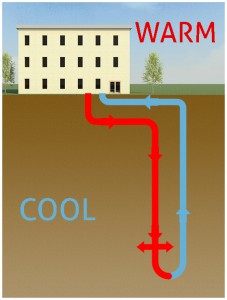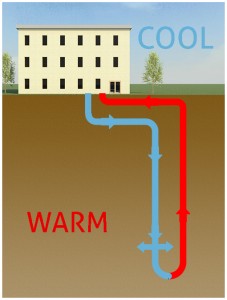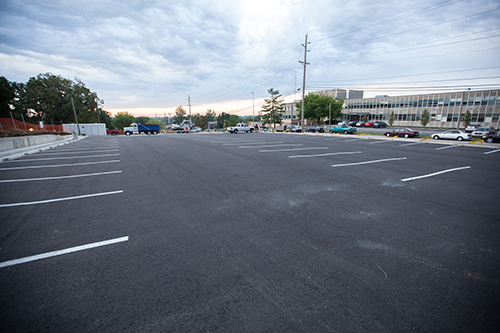A major milestone for the Missouri S&T’s geothermal project will be reached early next week as the power plant boiler #5 will be shut down and all steam production will cease permanently. Heat recovery chillers in all three regional plants have been started, and heat is being provided to six buildings on campus. Over the past month, a majority of the chilled water supply used for air conditioning on campus has been provided by the geothermal system. Commissioning of the regional plant equipment will continue throughout the summer.
Remaining connections to the hot water distribution will take place over the semester break and will include McNutt Hall, Straumanis James Hall, and Butler Carlton Civil Engineering Building. Also, hot water boilers in Toomey Hall will be installed and several HVAC renovation projects will be completed this summer. These projects include HVAC renovations in the Physics Building, Fulton Hall, Bullman Multi-Purpose Building, and Student Recreation Center. Once these are complete the geothermal system will be fully implemented.
When completed, the geothermal energy system is estimated to cut annual energy usage by 50%, reduce carbon dioxide emissions by 25,000 tons per year, and cut water usage by eight million gallons per year. Many parking and landscape improvements continue, the most recently completed being the landscaping improvements in the north mall area. Also occurring over the summer, parking lot 5 expansion north of Emerson Hall will be constructed.
Your continued patience is appreciated for any inconvenience caused from this phase of the project implementation as we move towards completion and a more energy efficient campus.










